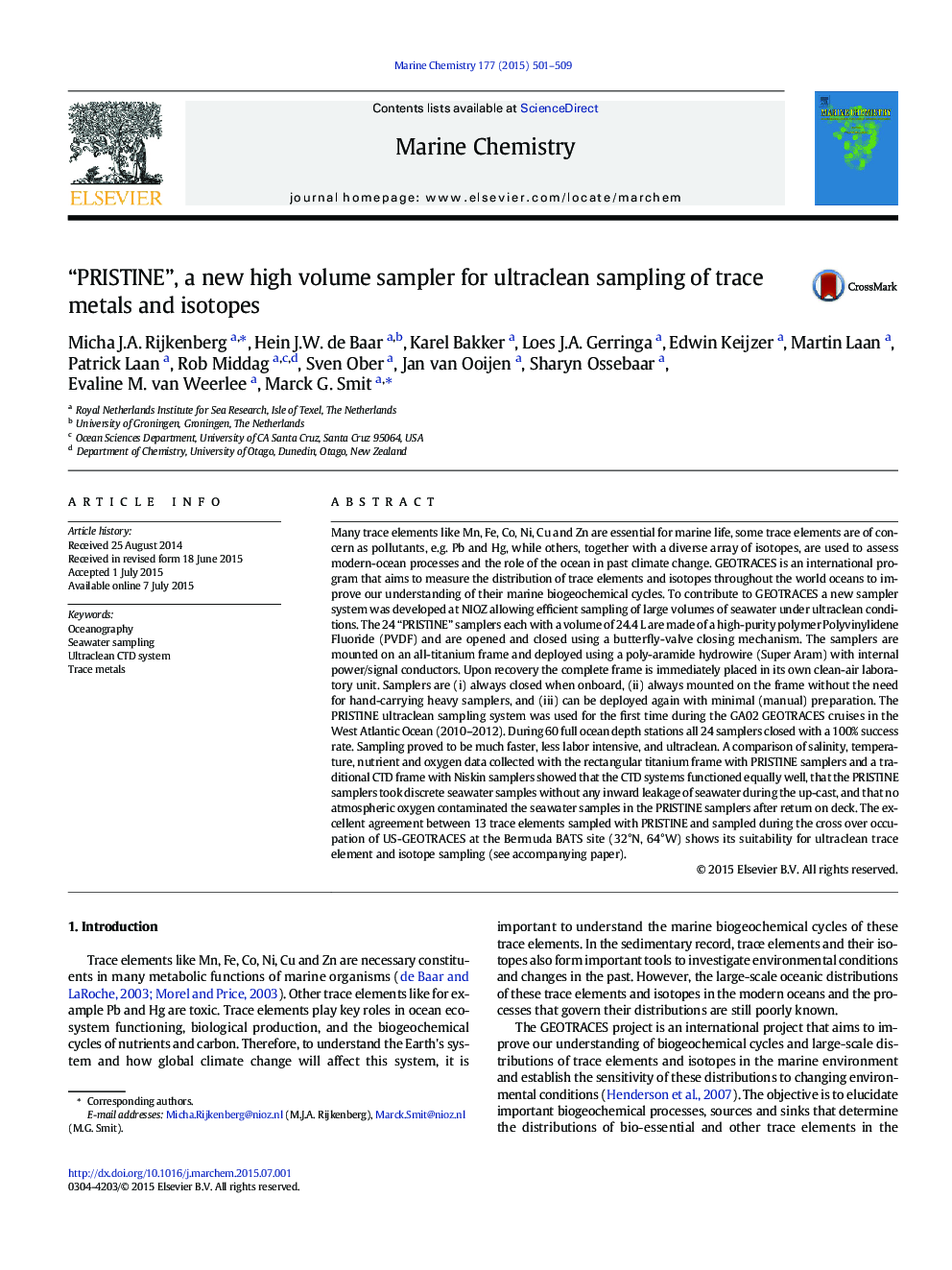| Article ID | Journal | Published Year | Pages | File Type |
|---|---|---|---|---|
| 1262718 | Marine Chemistry | 2015 | 9 Pages |
•A new sampler system was developed at NIOZ allowing efficient sampling of large seawater volumes under ultraclean conditions.•During 60 full ocean depth stations all 24 samplers closed with a 100% success rate.•Sampling proved to be much faster, less labor intensive, and ultraclean.•No inward leakage of seawater during the up-cast and no atmospheric oxygen contamination after return on deck were detected.•The PRISTINE samplers are suitable for ultraclean sampling of trace metals in the oceans.
Many trace elements like Mn, Fe, Co, Ni, Cu and Zn are essential for marine life, some trace elements are of concern as pollutants, e.g. Pb and Hg, while others, together with a diverse array of isotopes, are used to assess modern-ocean processes and the role of the ocean in past climate change. GEOTRACES is an international program that aims to measure the distribution of trace elements and isotopes throughout the world oceans to improve our understanding of their marine biogeochemical cycles. To contribute to GEOTRACES a new sampler system was developed at NIOZ allowing efficient sampling of large volumes of seawater under ultraclean conditions. The 24 “PRISTINE” samplers each with a volume of 24.4 L are made of a high-purity polymer Polyvinylidene Fluoride (PVDF) and are opened and closed using a butterfly-valve closing mechanism. The samplers are mounted on an all-titanium frame and deployed using a poly-aramide hydrowire (Super Aram) with internal power/signal conductors. Upon recovery the complete frame is immediately placed in its own clean-air laboratory unit. Samplers are (i) always closed when onboard, (ii) always mounted on the frame without the need for hand-carrying heavy samplers, and (iii) can be deployed again with minimal (manual) preparation. The PRISTINE ultraclean sampling system was used for the first time during the GA02 GEOTRACES cruises in the West Atlantic Ocean (2010–2012). During 60 full ocean depth stations all 24 samplers closed with a 100% success rate. Sampling proved to be much faster, less labor intensive, and ultraclean. A comparison of salinity, temperature, nutrient and oxygen data collected with the rectangular titanium frame with PRISTINE samplers and a traditional CTD frame with Niskin samplers showed that the CTD systems functioned equally well, that the PRISTINE samplers took discrete seawater samples without any inward leakage of seawater during the up-cast, and that no atmospheric oxygen contaminated the seawater samples in the PRISTINE samplers after return on deck. The excellent agreement between 13 trace elements sampled with PRISTINE and sampled during the cross over occupation of US-GEOTRACES at the Bermuda BATS site (32°N, 64°W) shows its suitability for ultraclean trace element and isotope sampling (see accompanying paper).
